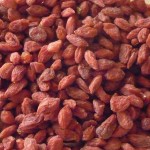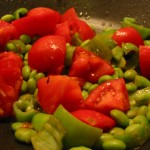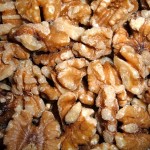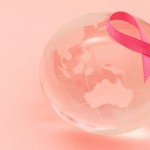
Depression, Social Isolation and Loneliness are linked to increased risks and poor recovery from both cancer and heart disease. Learn how Vitamin D can help.

Depression, Social Isolation and Loneliness are linked to increased risks and poor recovery from both cancer and heart disease. Learn how Vitamin D can help.

Heart Disease and Cancer Share MANY of the SAME Risk Factors. Here are 12 Factors that increase your chances of Developing both Heart Disease AND Cancer and what you can do to create Heart Health and Fight Cancer all at the same time!

Cervical Cancer Part 2 of 3 How To Prevent Cervical Cancer Naturally:What Can You Do To Save Your Own Life? No one should be diagnosed with Cervical Cancer. Here is how you can take charge of…

Inflammation promotes cancer. Nature has provided us with potent plant chemicals that can turn off pro-inflammatory Nuclear Factor Kappa b. That means your food can turn off cancer promoting genes. What you eat and drink has a direct impact on modulating inflammation at the genetic level. It is like turning off your water main. There is not going to be any water coming out of any faucet because the source has been cut off. By turning off NFkB, we turn off one of the main genes, one of the most powerful sources of a cascade of inflammation promotes cancer and cancer related symptoms that impact quality of life. Put a stop to that right now. Add these five foods to your diet now.

A recent study by Joseph Sparano, M.D at the Albert Einstein College of Medicine found
Obesity May Become the Leading Cause of Breast Cancer Deaths. A recent study finds
“that obesity at diagnosis of breast cancer is associated with about a 30 percent higher risk of recurrence and a nearly 50 percent higher risk of death.”

In an article I wrote for the Huffington Post, Dr. Chilkov iscussed the dangers of breast implants, including a destructive and painful auto-immune disease, polymyositis, a severe and damaging muscle disease. The disease can spread, attacking and weakening muscles, not only on the chest wall but all over the body leading to severe pain, weakness and debilitation. We received this touching email from a woman in Peru, grateful that we had provided information that led to her relief.

Researchers agree that walnut rich diets suppress the growth and development of breast tumors and suggest that adding walnuts to a healthy diet may reduce the risk of breast cancer as well as colorectal cancer, both of which are two of the most prevalent cancers in women.

Inflammation not only increases breast cancer risk, but a new study finds that women with the highest levels of inflammation at the time of diagnosis have the poorest survival. Find out what you can do.

Resveratrol is a potent anti-oxidant found in red and purple grapes and berries. It is used extensively in China as a longevity tonic and to support cancer patients and cardiovascular patients.

If you are a cancer patient you certainly don’t expect to die from a blood clot. You usually expect to die from the cancer itself. Cancer patients have a seven times higher risk of complications from blood clot formation. (1) One of those complications is death. Cancer patients have a dramatically increased risk of strokes, heart attacks and dangerous blood clots in the lungs (pulmonary embolism) and in the legs (deep vein thrombosis). Here are questions for your doctor and steps you can take to stay safe.
As Seen On: